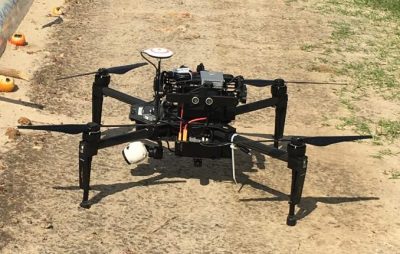No doubt, drones are increasingly popular in agriculture these days, as well as in many other industries. Drones are aircraft and not toys (unless they weigh under 0.55 pounds). As such, they are subject to FAA (Federal Aviation Administration) regulations. Drones have the capacity to cause great harm to people and damage properties, if not handled properly. Depending on why and how you use them, drones fall under several categories of regulations.
 For pure recreational purposes, the remote pilot of the drone must hold a T.R.U.S.T. certificate. This certificate is easy to obtain. The FAA maintains a webpage with instructions and a list of entities that provide the training and test to receive this certificate. Remember, this is for just recreational pilots. https://www.faa.gov/uas/recreational_flyers/knowledge_test_updates
For pure recreational purposes, the remote pilot of the drone must hold a T.R.U.S.T. certificate. This certificate is easy to obtain. The FAA maintains a webpage with instructions and a list of entities that provide the training and test to receive this certificate. Remember, this is for just recreational pilots. https://www.faa.gov/uas/recreational_flyers/knowledge_test_updates
If you plan to use this in your business or for profit, you will need to obtain an FAA Remote Pilot certificate. This is for remote pilots operating drones that are less than 55lbs. To obtain this certificate, you must be at least 16 years old, be able to read, write, speak and understand English, and be in physical and mental condition to fly a drone safely. You must study for and pass the FAA Unmanned Aircraft exam. The fee to take the exam is currently $175. The FAA maintains a webpage that walks you through these steps as well. https://www.faa.gov/uas/commercial_operators
Spray Drones require more steps, but this process is not impossible. Spray drones fall under Part 137 Dispensing Chemical and Agricultural Products. The FAA has recently streamlined this process to make it quicker and easier for new operators. If the spray drone weighs less than 55 pounds, there is one path. If it weighs more than 55 pounds (which is more likely), there is another path. Once again, the FAA maintains a webpage that outlines these paths. https://www.faa.gov/uas/advanced_operations/dispensing_chemicals
Next, Spray drone applicators will need to obtain a Florida Pesticide license with the proper crop category (Ag Row Crop, Tree Crop, Forestry, etc.) plus the aerial category.
The last step is to register your drone with the FAA using the FAA Drone Zone – https://faadronezone-access.faa.gov/#/.
There is an upcoming class to review for the FAA Remote Pilot (Part 107) Exam on September 20, 2024, in the Extension Office in Crestview. For more information, visit https://www.eventbrite.com/e/remote-pilot-workshop-tickets-859612593407.
- Field Days are for Education– Recap of the WFREC 2025 Corn & Soybean Field Day - July 25, 2025
- Spray Drone Regulations - July 16, 2024
- 2023 WFREC Crop Variety Trial Results - February 2, 2024
